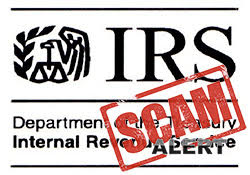Public Advisory Released Warning of 400% Increase in IRS Phishing Emails for 2016
 While tax season is upon us, in comes cybercrooks who are leveraging the IRS in ways that seek out personal data from consumers through phishing emails.
While tax season is upon us, in comes cybercrooks who are leveraging the IRS in ways that seek out personal data from consumers through phishing emails.
The US Internal Revenue Service has issued a public advisory that warns US citizens of a barrage of tax-related phishing email scams that are attempting to collect personal user information to spread malware through attachments.
Every year during tax season we see an overabundance of IRS tax scams and attacks on consumers. This year, things appear to be no different as hackers and cybercrooks are flooding email inboxes with spam messages that have clever phishing schemes that attempt to gather personal data from US citizens. The advisory released by the IRS is rather strong in its works claiming that there is an astonishing 400% increase in Phishing email attacks this year compared to last year at the same time.
With such an abundance and increase in phishing emails that exploit the IRS in ways that have yet to be determined, the IRS is vilified in issuing their public advisory.
We are barely half way through the tax season for this year and according to the IRS, they have received 363 reports in the first 16 days of February while they only had 201 reports for the entire month of February 2015. As a total amount of phishing reports received this year, the IRS reports getting 1,389 complaints of tax-themed messages that attempt to collect personal data from consumers.
At the current rate of receiving IRS phishing scam email reports, the IRS expects the number of tax-related phishing and malware scams to reach over 11,000 this year. To compare, the whole year of 2014 only saw 1,361 incidents and 2015 saw 2,748 complaints. Tallying up the numbers and running a comparison to 2016's numbers, that's about a 400% increase of phishing emails that exploit the IRS.
As far as the reasons for a 400% increase in tax-related phishing emails and malware scams is due to hackers and cybercrooks turning such threats into a lucrative business. Fundamentally, cybercrooks make away with an abundance of personal data that can be used to make fraudulent transactions and file illicit tax returns. Doing so could yield a handsome payday for cybercrooks in the long-term.
The IRS Commissioner John Koskinen, as stated in the IRS public advisory, says that "This dramatic jump in these scams comes at the busiest time of tax season." He goes on to add that we should "Watch out for fraudsters slipping these official-looking emails into inboxes, trying to confuse people at the very time they work on their taxes. We urge people not to click on these emails."
We know all-to-well how there are a multitude of phishing websites specifically designed to mimic the look and operation of legitimate sites and companies. The IRS is no different in hackers mimicking the look of IRS.gov where they include malicious links within their phishing email scams that redirect your web browser to a page asking for your personal details.
Consumers should utilize extreme caution with their emails this tax season. Also, consumers must know that the IRS does not initiate contact with taxpayers by email to request personal or financial information.
The IRS has listed several phishing email subject lines to avoid and be on the lookout for below.
- Numerous variations about people's tax refund.
- Update your filing details, which can include references to W-2.
- Confirm your personal information.
- Get my IP Pin.
- Get my E-file Pin.
- Order a transcript.
- Complete your tax return information.
Leave a Reply
Please note that we are not able to assist with billing and support issues regarding SpyHunter or other products. If you're having issues with SpyHunter, please get in touch with SpyHunter customer support through your SpyHunter . If you have SpyHunter billing questions, we recommend you check the Billing FAQ. For general suggestions or feedback, contact us.